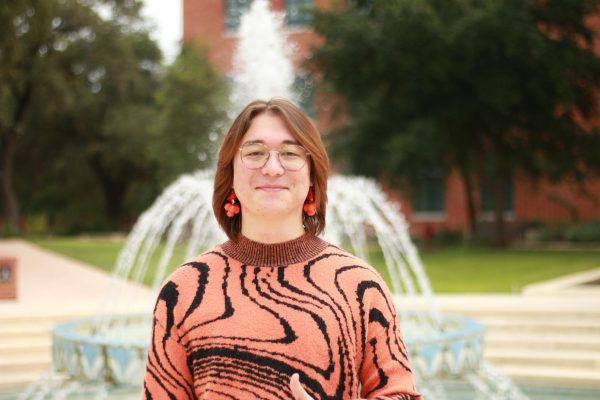Betty’s Co. and other reproductive health organizations on campus provide educational and health resources for sexual education. Through upcoming informational sessions, medical appointments and spaces for conversation, Betty’s Co., Tigers For Reproductive Justice (TFRJ), Tigers For Life (TFL) and wellness services are here to provide a space to educate students on their bodies.
Betty’s Co., a mobile clinic brought to campus by wellness services that provides medical care, educational services and counseling help to students assigned female at birth (AFAB), is available to students at least once a month for an entire week.
Found outside of Mabee Dining Hall in the parking lot starting in March 2023, the brightly-colored trailer is home to a medical clinic, the “awkward shop” and the office of Betty’s Co. founder and CEO Jennifer Newell.
“We have this custom mobile clinic that is intended to be really inviting, but also it allows us to go to the places where there are more younger females from college campuses,” Newell said.
Betty’s Co. wants to create a space where AFABs can feel comfortable seeking the health help they need. Newell also emphasized the need for increased accessibility for AFAB sexual health care.
“Our mission is really focused on normalizing women’s health care and focused on increasing access to care,” Newell said.
Finding information for feminine health is not easily accessible. The world of AFAB health care is centered around pregnancy, yet there is so much more to AFAB health than that.
“I kind of looked at the healthcare markets and I realized we are not educating our young women about their bodies adequately, and we don’t have a mechanism to age them from pediatrics into women’s health care,” Newell said.
According to Newell, typically AFAB people between the ages of 15 and 24 who have underlying gynecological conditions such as polycystic ovary syndrome or premenstrual dysphoric disorder will start to experience symptoms during that age range. A combined 35% of the female population experience symptoms caused by an underlying condition between the ages of 18 and 24.
Therefore, providing resources for healthcare to help college-aged students is vital in allowing them to identify if they are diagnosed with these disorders.
“We’ve really designed Betty’s to intentionally be a place that is shame-free and judgment-free. We know we’re impacting because we have conversations with women every day about their reproductive health care so that they can manage their lives and their healthcare needs,” Newell said. “One can get an appointment with us the next day, whereas in some places there’s a long waitlist. You have to focus on access in terms of affordability of healthcare, which could be expensive, so we try to keep our prices as low as possible.”
Similarly, student-led organizations on campus are promoting sexual health education via information sessions, special events, tabling in Coates Student Center, social media posts and other advertisements. TFRJ is a club that provides sexual health resources, education and promotes student freedom. Vice president and sophomore anthropology and biology double-major Ashleigh Reese, is helping the club plan for more outreach in this upcoming semester.
“This year, we’re really focusing on disseminating important information regarding campus resources, and topics that are pertinent to our organization,” Reese said.
TFRJ wants to discuss the different types of contraceptives and legislation in the United States and San Antonio which could affect access to types of contraceptives and to promote resources available to Trinity students as well, like health services, different Title IX resources, counseling services and off-campus resources. TFRJ would like to helps students learn how to handle certain situations, like situations with sexual harassment or assault. TFRJ is currently compiling an interactive map of off-campus resources in San Antonio, including different resources for queer youth, rape crisis centers and different STI testing locations.
Another organization on campus regarding reproductive health is TFL, a secular club working to promote the sanctity of human life at all stages of development. John Love, TFL president and senior finance major, shared that the club provides resources that talk about the effectiveness and risks of different birth control methods, the connections they have with charities and other resources. They offer information regarding free pregnancy or adoption resources, education and direct financial aid for new or expecting mothers.
“It’s important for students to know what’s available and to use the resources here. In working with a lot of different colleges and universities, I think Trinity is really on the cutting edge of making sure that all students are welcomed and have what they need to be the most successful students and have a successful experience here,” Newell said.









